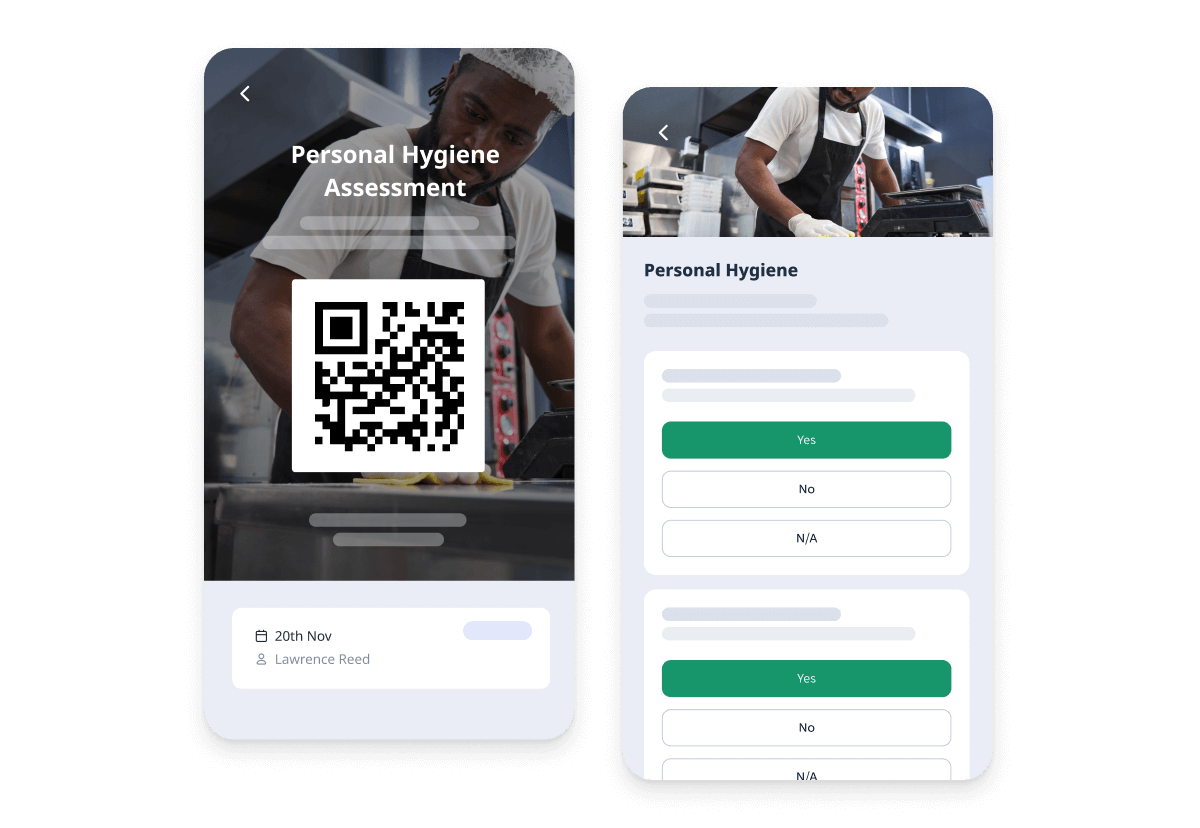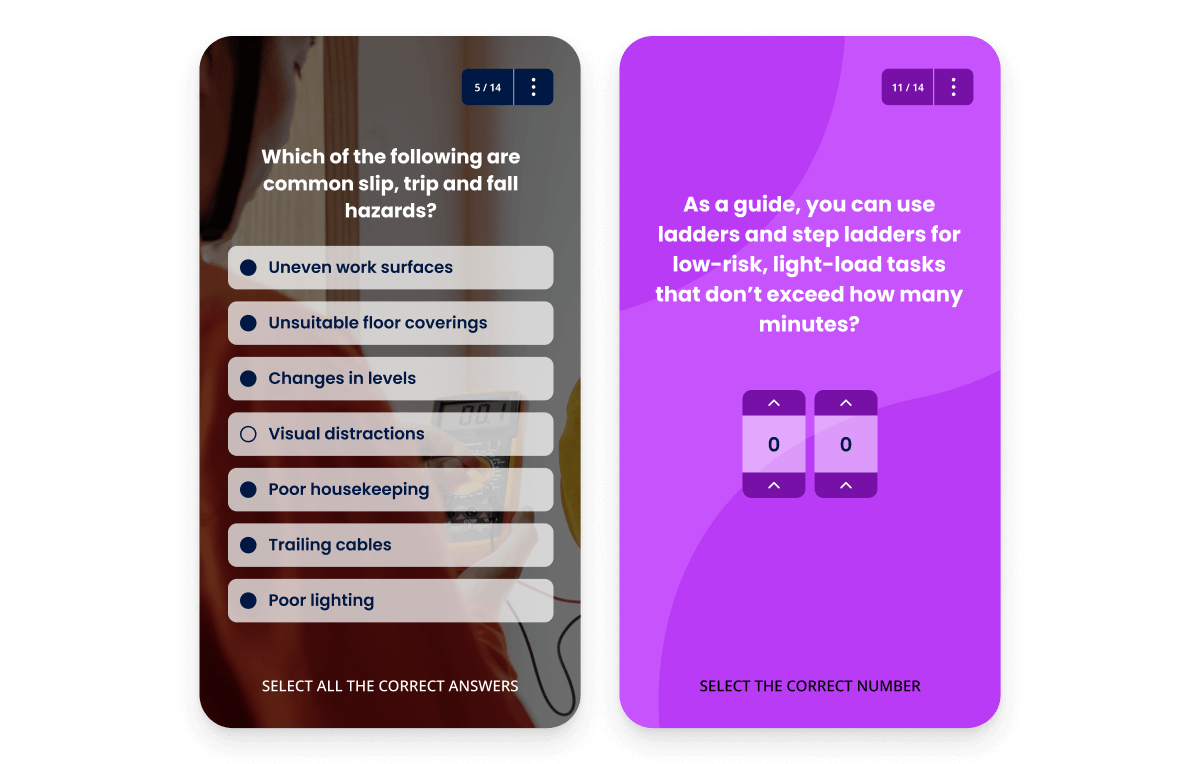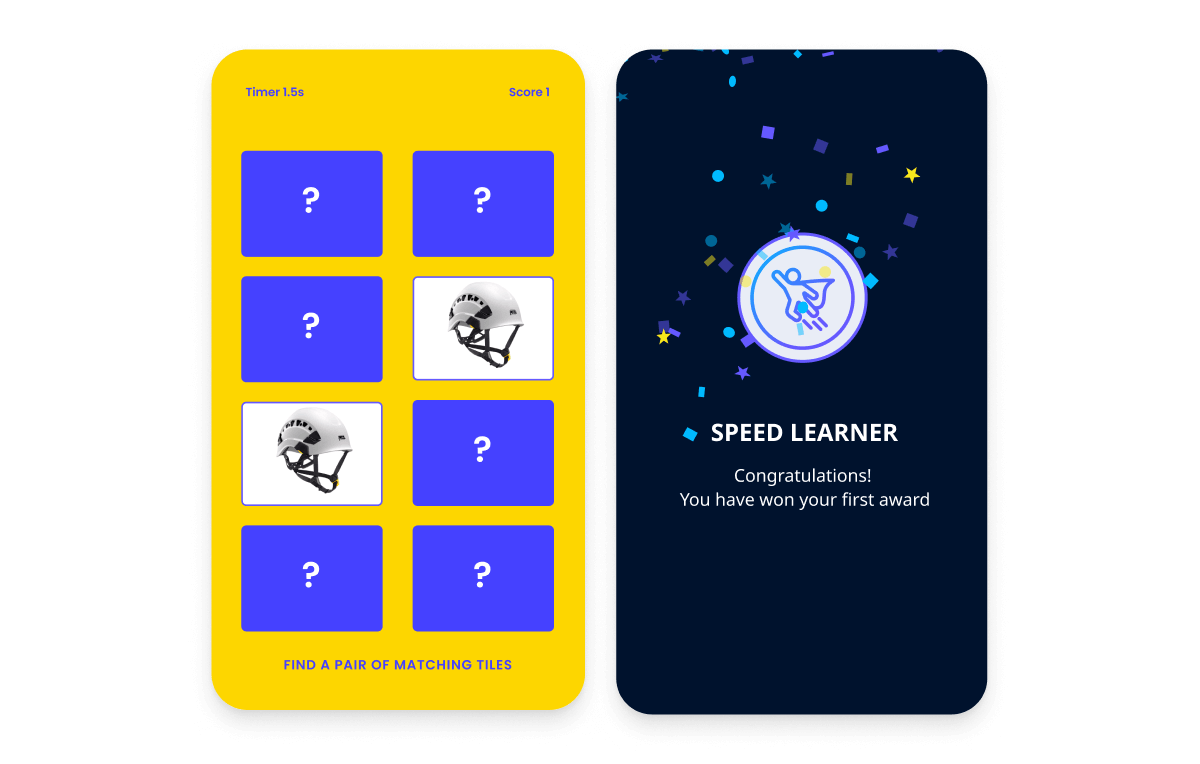12 Essential Types of Assessment for work (and When and How to Use Them)

There are multiple types of assessments you can use to identify your team’s knowledge and skills and where they can improve. But, with so many options out there, determining which one will work best for you and your team can be tricky.
For this reason, we’ve created a guide list of the most recommended types of assessments and class assessment tools to consider.
Why are assessments important?
Assessments help measure learning, identify strengths and weaknesses, offer constructive feedback, and hold individuals and institutions accountable. They also make sure that educational standards and quality are maintained. Here are other ways assessments can benefit your workforce and teams:
- Support decision-making: With data and experience to back up insights, you and your teams can figure out how to move forward with work-related decisions.
- Facilitate personal growth: Assessment pinpoint exactly where your employees are. With this information, you can work towards a concrete direction in your team's career and personal growth.
- Obtain achievements: From education to professional certificates, assessments show the exact skill level of your teams.
- Structure evaluations: Assessments are an objective way to evaluate knowledge, skills, and performance.
EdApp has courses on different types of assessments from various fields. From risk assessment for manufacturing to learning needs assessment, this platform has got you covered.
1. Practical assessment
A practical assessment consists of practical activities that are meant to assess and observe the practical skills and behavior of employees. It helps to ensure whether they’re qualified for the role and capable of handling the duties connected to their chosen field of study. A person’s attention to detail is also assessed in this type of assessment, giving you a better indication of how well they’ll perform on the job and apply their knowledge and abilities in a real-world setting. This is especially helpful for topics like event safety training, customer service, and more.
Make sure your team’s applying what they learn on the job with none other than EdApp, an award-winning training platform that’s widely recognized in the world of L&D. Through its Practical Assessment tool, you can easily create your own digital checklist and use it to assess and track your team’s knowledge and skill. All results are automatically tracked in this platform, which takes away all the hassle of manually monitoring your team through paper checklists or spreadsheets.

Try EdApp for free and start using Practical Assessments today!
2. Diagnostic assessment
Diagnostic assessment is the most preferred type of assessment of learning to check a learner’s current knowledge base. Most of the time, it involves a series of questions given at the start of a class or training session to identify a learner’s strengths and weaknesses prior to learning.
While it’s mostly used at school, you can also include this assessment as part of your onboarding process to get to know your new hires and set a benchmark for tacking their skill and knowledge development. A quick tip for trainers – consider giving them the same assessment to see how they’ve made progress since joining your team!
3. Formative assessment
Unlike the diagnostic test, formative assessment for learning is administered during a training or learning session to capture a learner’s progress in real-time. It can take a variety of forms, sometimes even the combination of formal and informal assessment procedures like practice quizzes, point exercises, and even short essays.
The primary goal of this type of educational assessment is to identify how the employees are improving as they learn and, at the same time, spot any knowledge gaps, misunderstandings, or proficiency levels that they have not achieved yet. This way, trainers and instructors can immediately modify and adjust their teaching strategies to achieve a high impact learning.
4. Summative assessment
Summative assessment serves as a summary test provided at the end of a learning course or training activity. This type of assessment helps trainers and instructors define how much a learner has grown and improved over time and record their overall achievement. In contrast to the first two assessments, formative and summative assessments are formal and highly evaluative. Plus, it usually involves clear instructions, expectations, and grading rubrics. Frequently high stakes, both instructors and students work extra harder to prepare for these assessments.
Because most businesses are now operating remotely as a result of the pandemic, online summative assessments have become the norm. And thanks to a plethora of online quiz creators, creating this type of assessment is now easier than ever before.

Like with EdApp’s Rapid Refresh, which can help launch your summative assessments in minutes, not days or weeks. Just input your questions and corresponding answers in their user-friendly spreadsheet, and let this type of assessment tool automatically transform your content into a series of gamified tests.
5. Skill assessment
Very simply, skill assessment helps measure a person’s ability to accomplish specific tasks. This is one of the types of performance-based assessments that are usually administered by recruiting professionals to identify whether or not a candidate meets the qualifications needed to work in a specific occupation. These skills may be innate or acquired through prior work experience, school education, or training.
Skill assessment can also be used to evaluate a person’s soft skills and determine if he or she can easily fit in and get along in the workplace.
6. Gamified assessment
Gamified or game-based assessment is a type of assessment strategy that uses various gamification elements to evaluate and gather specific information from candidates or employees, like their opinions on a certain topic or skill level. It transforms traditional tests into a game format, like memory games, true or false, and jumbled words, to make the formative assessment strategies more fun and contemporary. Quick and engaging, there’s no surprise how gamified assessment is rapidly gaining popularity among recruitment and L&D professionals across different industries.

If this type of assessment has captured your interest, EdApp LMS has the perfect solution for you. Thanks to its intuitive authoring tool, this platform can help you put together a gamified assessment in just a few steps. All you need to do is choose from its 80+ game templates and author your questions and answers. To make assessing even more engaging, you can spice it up by adding weighted scores or timers – no technical or coding expertise is needed.
7. Oral assessment
Oral assessment, as its name implies, is a popular formal assessment type that evaluates employees or candidates orally. For this method, the instructors invite their team for a face-to-face session or virtual meeting, question them directly, and assess them based on their verbal answers. Most of the time, this assessment is done casually, with no specific structured list of questions. The answers can be elaborative or straight to the point, all up to the employer or trainer’s requirements.
The best part about this type of assessment is that oral responses can never be plagiarized or copied. Plus, it offers real-time, instant results.
8. Ipsative assessment
Ipsative assessment is the practice of retaking an assessment and comparing the results from the previous performance. This type of formative evaluation helps learners identify their mistakes and areas where they still need to improve, motivating them to perform better on their next assessment. The ipsative assessment builds on the idea that learning is a process, and there’s still room for improvement for those who have achieved a lower mark on their first attempt.
9. Norm-referenced assessment
Norm-referenced assessment, also called NRT tests, is a type of assessment that significantly compares a learner’s knowledge and performance to another.
The comparison class is called the “norming group”, which typically consists of a small group of test-takers that share specific characteristics, like age, education, job position, and more. This assessment ranks learners from highest to lowest to accentuate differences among them and point out who is ahead or behind the norm. This information can assist trainers and managers in determining which members of the team require additional attention and guidance at work.
10. Criterion-referenced assessment
Criterion-referenced assessment is a type of assessment that measures a learner’s learning progress or performance based on pre-determined and agreed-upon criteria and standards.
Unlike the NRT tests, this evaluation doesn’t compare an individual against their peers. A criterion-referenced assessment directly measures up a person’s skills and abilities to the criterion, regardless of how the other test takers perform on the assessment. This, in turn, will help trainers and managers gather insights about an employee’s strengths and areas for improvement.
11. Scenario-Based Assessment
Perhaps you want to see how an individual will perform in real-world situations. Needless to say, scenario-based assessment is the way to go. This type of assessment involves a hypothetical scenario where learners are expected to apply their theoretical knowledge. Using this method, assessors will be able to see firsthand the level of expertise of their learners.
Not only does it produce a more reliable evaluation of your employee’s skills and knowledge, but this type of assessment also serves as an effective way to help your team practice and develop their skills. Scenario-based assessments provide a great opportunity to explore their role and function, without the pressure of being involved yet in a real-world situation.
12. Behavioral Assessment
Behavioral assessment, as its name suggests, is a psychological assessment that aims to assess a person’s behavior. In a workplace setting, individuals are observed in a simulated work environment and shown realistic role-related scenarios.
From there, they’ll be asked to perform the best possible actions, like solving an issue or handling a conflict. How they respond to each situation will show you whether or not they’re fit for the role.
Subscribe to our blog newsletter
Author
Jeanellie Avelino
Jen is a learning expert at EdApp, a mobile-based training platform that helps corporates and businesses bring their training solutions to the next level. She carries an extensive writing experience in a variety of fields, including architecture, the gig economy, and computer software. Outside of work, she enjoys her free time watching her favorite series and documentaries, reading motivational books, and cross-stitching.
